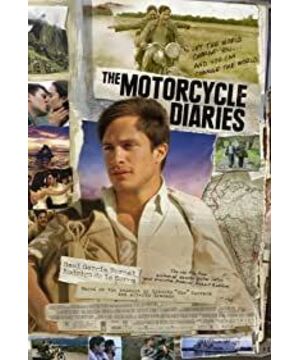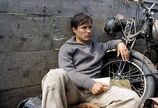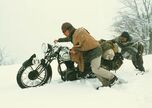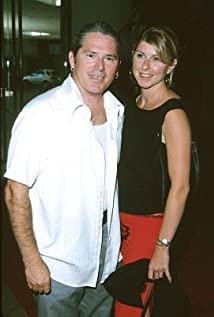---Che Guevara
This is what Guevara said to all the medical staff in the leprosy village in the movie. At the age of 24, a revolution was brewing on the face of this young man who could not dance. A few years later, who would have thought that this handsome young man would change the fate of millions of Latin American people.
Traveled to Chile, Peru, Colombia, Venezuela, 8 months, 12,425 kilometers. Without this trip, Guevara might still be such a teenager, upright, stubborn, adventurous, and asthmatic. But I think that if it weren't for this trip, Guevara would not have become that middle-aged, ready to go, hate evil, and set off the Cuban Revolution. He and his friend Granado, a pharmacist, set out from Argentina, determined to spread the indentation of motorcycles in every Latin American country, and then went back to medical school to continue their unfinished studies. At first, it was a simple dream to run the distance before Granado's 30th birthday. Two people, a motorcycle, a map, a pistol, and a puppy (a gift that Guevara was going to give to his girlfriend), took a year off from school and set off.
Falling down countless times, getting up again, holding the car, and starting again. Or, in the case of strong winds, heavy snow, freezing and starvation. This reminds me of the attitude of the young man in "Turn the Mountain". When youth encounters a predicament that is more dangerous than setbacks, do you complain or bury your head in moving forward? Compared with "Turn the Mountain", the theme of "Motorcycle Diary" is more profound. Therefore, it is not only the snow scene, the foggy sky, the flying yellow sand, but also Guevara's spiritual growth that touches me.
"Mom, what do we leave behind when we cross the border? Every moment seems to be split in two, sentimental about what's left, excited about being in a new place."
"Their faces are tragic and unforgettable, and they say there are comrades who have gone mysteriously missing. , and was said to be thrown into the sea, which was one of the coldest nights of my life, but also made me feel closer to this strange group of people to me."
“When we left Church Camata, did we feel that the world was changing, or did we change? The further we went into the Andes, the more indigenous people we met, who were homeless on their lands…”
He kept recording and thinking all the time, just like the world suddenly opened its door to him, all the tragic sadness, all the pain, all the helpless despair, all appeared in front of him with new faces. It turns out that Latin America is like this, not reading books, going to school, arguing with people and breaking up a few times. I am very curious what this hot boy, who was about the same age as me, was thinking when he saw the suffering of the people. No matter what he said to himself in his heart, even if he was naive, even if he was bloody, he finally did it, resisting violence with violence. The important feature that distinguishes great people from ordinary people is not their daring to think, but their daring to put their thoughts into practice. An elderly sick woman, a couple of miners migrating, displaced aborigines, patients in a leprosy village, these encounters injected into his meridians again and again, turning him into a Guevara with the blood of the people, "Communism of Don Quixote".
The scene that touched me the most—I believe it also touched the majority of the audience—Guevara desperately swam to the leprosy village on the other side after celebrating his birthday with the medical staff. He wanted to welcome the first day of his 24-year-old with those patients. . I understand him very well. For Guevara, they are not only patients, but a symbol of depression. They are brothers and elders who have played football together, and sisters, women and children who secretly served him meals. A group of people who gave and gained true love. There is no doubt that Guevara is righteous and upright. But what I want to stress is his morals. His morality is not the basic etiquette norms such as not spitting, not throwing peeling confetti, not jaywalking, nor the so-called charity of begging, begging, beggars, and the weak, etc., but it is based on a deeper level of humanitarianism. moral sense. That is, when you feel that there are some people who cannot be ignored morally, you are less able to convince yourself to ignore them. Just like the meaning of "the power of walking" initiated by Chen Kun, the charity of the soul is even more flowing.
The unique scenery of South America in the film is a major attraction. Its picture reminds me of "The English Patient" again. There is no lack of warmth in the desolation, vast and lofty exotic style, strange and cold but not abrupt. The heaviest part of the film is the latter part and the end of the film, the black and white images that freeze from time to time, like a mournful and tragic documentary, and at the same time give people strength.
I finished watching this movie on the train back to Han a few days ago, which made my short trip, which is not a trip, also stained with some romantic elements. Gael Garcia Bernal's temperament resembles Che Guevara himself, especially the way he laughs. Of course, the real Guevara is more than a little domineering. When the heroic youth died, it was the birth of a middle-aged Guevara full of vicissitudes and stories. I don't know this great man very well, and I didn't even know him until I first entered the university. I can only imagine this "Jesus in the world" through his pictures and his words. With a big beard, slovenly, and a cigar, you would have imagined that this is the original scholar in white.
I like a line in the film, "The revolution should not be an imitation." I appreciate Thoreau's calm attitude towards revolutionaries, not blindly following revolutions because of his dissatisfaction with the current government. The revolution must have bloodshed, but the greatness of the revolution must be worth the bloodshed of millions of people. Sacrifice is also the fate of Guevara. It was the reasonable destination of his justice and integrity under the social conditions at that time.
"The person who wrote these diaries died when he set foot on the soil of Argentina again. I am no longer me."
Guevara has become a spirit.
View more about The Motorcycle Diaries reviews









